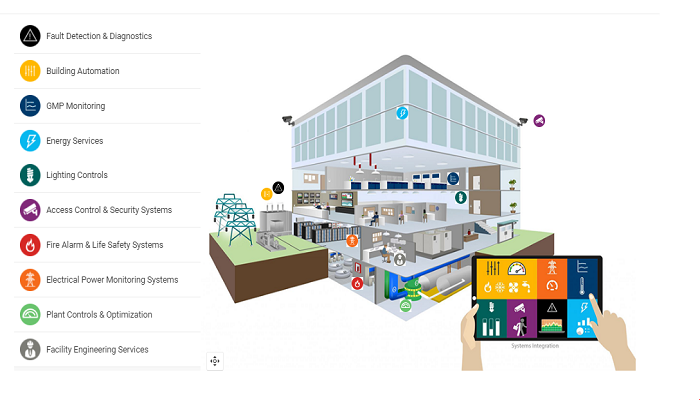9 Mistakes Businesses Should Avoid When Managing Remote Workers

In the United States, about 4.7 million people work remotely. However, based on the recent stay at home orders, this number has temporarily increased.
If your team transitioned to remote work, you might have encountered some challenges. As a manager, you need to ensure you keep morale and productivity rates high. That isn’t always easy when you can’t meet face-to-face.
Are you struggling to manage your remote team?
If you are, read on to learn about some top tips for managing remote workers.
- Not Checking With the Team
Working remotely means you’re isolated from the rest of your team. You’re no longer seeing your team in person on a daily or weekly basis.
You might forget about your team when you’re working remotely for several weeks, especially as you adjust to the new work environment.
Although it’s easy to forget to reach out to your team, you have to make it a priority. Your workers might also be facing similar challenges and might not reach out to you.
If your team doesn’t reach out to you, make sure you get in touch with them.
- Lack of Flexibility
When your employees work remotely, it’s important that you’re flexible. Although working remotely means eliminating the commute time and wearing comfy clothes, your employees still face many challenges.
Some of the challenges your employees may face is not having a home office, homeschooling their kids, and not having the right equipment. Because of everything they have going on in their lives, your employees might not be able to adhere to a regular 9-to-5 schedule.
While it’s important for your employees to deliver their work, you should be careful not to be too rigid. Talk to your employees about their schedule and when they feel most productive.
- Avoid Micromanaging Your Employees
If you’re working remotely, you have to be aware that your employees will work more independently than before. While you don’t want to forget about them, you also don’t want to micromanage them.
It’s difficult as a manager not to have as much control as you used to when working in the office. However, you cannot forget that you trained your team to work on their own.
Make sure you give your team the opportunity to show you what they’re capable of doing.
- Don’t Forget About Team Building
Team building is essential for teams to work well together and trust one another. Working remotely and not seeing the team in person doesn’t mean you should forget about team building.
Even if it’s challenging, you still need to make it a priority. While you don’t have to plan a whole team outing, little things can go a long way.
Try to host regular team meetings or a virtual happy hour. You can still take the time to celebrate birthdays, milestones, and work anniversaries. Little things can boost your team’s morale.
- Be Aware of Time Zone Differences
When working remotely, you need to be aware of time zones. Even if some of your team is in the same time zone as you, don’t forget about the other people working in different time zones.
You need to be aware and conscious that other team members work in different time zones. It’s essential you set realistic expectations and deadlines for those team members working in a different time zone.
- Failure to Get to Know Your Employees
Although you’re working remotely, it doesn’t mean you can’t get to know your employees a little bit better. While you don’t have have to build a super close relationship with them, you should still get to know them better.
Try to message them about something other than work every once in a while. If you get to know your employees on a more personal level, it will become easier to communicate with them.
- Sticking to Email
Working remotely doesn’t mean you should stick to email communication. In fact, when you send and receive many emails, things can fall through the cracks. People don’t want to waste time writing an email and waiting for a reply when they can say it over the phone.
Rather than only communicating via email, try to take advantage of other forms of communication. Make sure you also call your team, have virtual check-ins, or even text them.
Remember that while working remotely, your employees also crave human interaction. Having a work call also gives you a chance to check in with them and build a relationship.
- Failure to Keep Your Employees in the Loop
As a manager, you will find many challenges when communicating with employees and keeping them informed.
You have to communicate any changes with your team. You should keep them updated of any schedule changes, pay information, and more.
For example, if you or your workers need to provide paycheck information, you use a pay stub. If your old template isn’t cutting it, consider checking out a different fake pay stub template for a more professional look. Make sure you let your team know about changes like these or they might get confused.
Even if you think you’re communicating unimportant information, your team will appreciate you keeping them in the loop.
- Lack of Respect for Their Time
Although it might seem that while working remotely your team has all the time in the world, you still need to be respectful of their time.
For example, if you live in New York and want to schedule a meeting at 9 am, you need to respect the team members that live in Los Angeles. You can’t expect them to wake up at 6 am to have a meeting.
Also, even if they get work done late in the day, you should always stick to a 9-to-5 schedule when scheduling team meetings and phone calls.
You should also set work deadlines to fit their schedule. Don’t expect them to answer your email right away if you message them outside of working hours.

Mistakes to Avoid When Managing Remote Workers
Now that you know what mistakes to avoid when managing remote workers, you can ensure your team continues to produce great work. Remember to remain flexible, respect their time, check-in with the team, and use different methods to communicate.
If you enjoyed these tips and would like to learn more, check out the rest of our website.






